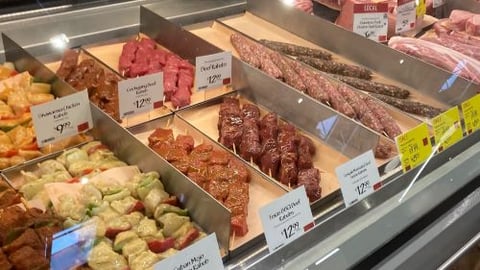Majority of Shoppers Say Grocery Delivery Is Too Expensive: Report
Grocery shoppers are increasingly averse to paying the extra fees associated with delivery services, according to new shopper behavior research from Mercatus and Brick Meets Click. While one in five U.S. households had used grocery delivery in the previous month, 62% of shoppers said they did not because they like to select their own fruits and vegetables and another 62% said they do not want to pay for the extra charges, fees and tips.
“If you are a grocery delivery customer – especially one using a third-party marketplace – it’s understandable that you may want to find ways to pay less given inflation’s impact on purchasing power,” said Mark Fairhurst, VP marketing at Mercatus. “These incremental costs, including delivery fees, shopper service charges, fuel surcharges, and even a very modest tip, are some of the last things customers view during the checkout stage, and they can add $20 or more to the bill.”
Additionally, 14% of households cited products being more expensive online as a reason for not using a delivery service. Shoppers over the age of 60 were most concerned with choosing their own produce, while the desire to avoid paying delivery service-related costs was the same across all age groups.
“These findings reinforce the idea that customers are more sensitive to the added service costs that they can plainly see,” said David Bishop, partner at Brick Meets Click. “This makes sense, because accurately perceiving differences in product pricing online versus in-store, even with known value items, requires more effort on the customer’s part.”
The research also found that if consumers were offered a variable delivery fee that scaled down when the delivery window was extended, more than 40% of customers would choose to receive their order the following day instead of within several hours.
“Grocery customers don’t want to pay more than they must, and the explicit fees that come with online delivery are a big speed bump,” said Sylvain Perrier, president and CEO of Mercatus. “Other aspects of this research reinforce that grocery customers shop regional grocers for different reasons than big-box mass retailers like Target or Walmart. Being more convenient is the main reason customers prefer grocery over a mass retailer, followed by the quality of the products they want to buy."






